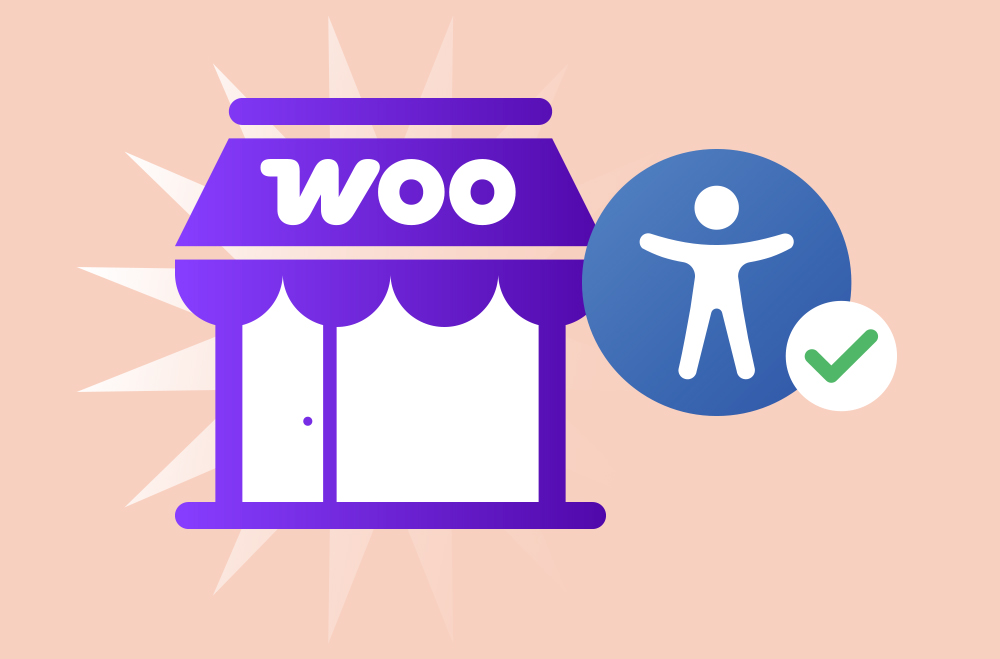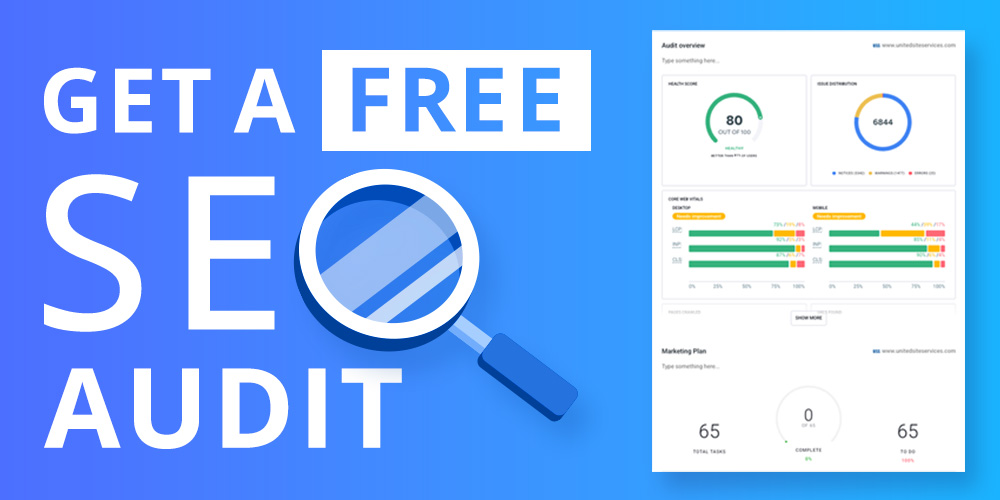


Im Jahr 2025 wird von WooCommerce-Shop-Betreibern mehr erwartet, als nur Produkte zu verkaufen: Sie müssen inklusive, transparente und rechtskonforme Einkaufserlebnisse schaffen. Barrierefreiheit (ADA) und Datenschutz (DSGVO) sind keine optionalen Zusatzfunktionen mehr, sondern unverzichtbar für eine moderne E-Commerce-Strategie. Indem Sie sicherstellen, dass Ihr Shop für Menschen mit Behinderungen nutzbar ist und Datenschutzrechte respektiert, erfüllen Sie globale Rechtsstandards und fördern das Vertrauen und die Loyalität Ihrer Kunden.
Dieser Artikel untersucht, was die ADA- und DSGVO-Konformität für WooCommerce bedeutet und warum sie heute wichtiger denn je ist. Sie erfahren, wie Sie Ihren Shop barrierefrei gestalten, wie Sie Kundendaten rechtskonform handhaben und welche Tools den Prozess vereinfachen. Egal, ob Sie gerade erst anfangen oder Ihre Compliance-Strategie verfeinern möchten – diese Erkenntnisse helfen Ihnen, Ihren Shop zukunftssicher zu machen, rechtliche Risiken zu minimieren und das Engagement Ihrer Marke für Ethik, Datenschutz und Inklusivität in einem zunehmend wettbewerbsorientierten Online-Markt zu stärken.

Von 2022 bis 2025 werden WooCommerce-Shops ihre ADA- und DSGVO-Konformität kontinuierlich verbessern. Die ADA-Konformität wird von 35 % auf 85 % steigen, während die DSGVO-Konformität schneller von 40 % auf 92 % ansteigen wird. Die Daten spiegeln das zunehmende Bewusstsein und die Akzeptanz von Barrierefreiheits- und Datenschutzstandards im globalen E-Commerce wider.
Der Americans with Disabilities Act (ADA) stellt sicher, dass alle Menschen, auch Menschen mit Behinderungen, gleichberechtigten Zugang zu Waren und Dienstleistungen haben, auch online. Für WooCommerce-Shop-Betreiber bedeutet dies, dass Ihre Website für Nutzer nutzbar sein muss, die auf unterstützende Technologien wie Screenreader, Tastaturnavigation oder alternative Eingabegeräte angewiesen sind. Barrierefreiheit ist nicht nur eine gesetzliche Anforderung, sondern ein Geschäftsvorteil, der Ihnen hilft, mehr potenzielle Kunden zu erreichen und das Markenvertrauen zu stärken.
Nicht barrierefreie Websites können zu Klagen, Kundenreaktionen und verpassten Chancen führen. Mit proaktiver ADA-Konformität demonstrieren Sie jedoch Inklusivität, verbessern das allgemeine Nutzererlebnis und erweitern Ihre Marktreichweite. Selbst kleine Anpassungen wie das Hinzufügen von Alternativtext oder die Erhöhung des Kontrasts können das Einkaufserlebnis deutlich verbessern. Barrierefreiheit zu priorisieren bedeutet nicht nur, Gesetze einzuhalten, sondern das Richtige für Ihre Nutzer zu tun.
Die Datenschutz-Grundverordnung (DSGVO) ist ein umfassendes Datenschutzgesetz der Europäischen Union zum Schutz der personenbezogenen Daten ihrer Bürger. Auch wenn Ihr WooCommerce-Shop außerhalb der EU betrieben wird, sind Sie gesetzlich zur Einhaltung verpflichtet, wenn Sie Daten von EU-Bürgern erfassen, speichern oder verarbeiten. Dazu gehören Kundennamen, E-Mail-Adressen, Telefonnummern, IP-Adressen und Zahlungsdaten. Die Einhaltung der DSGVO ist nicht optional; sie ist ein entscheidender Schritt zum Schutz der Kundendaten und zur Wahrung der Glaubwürdigkeit Ihres Unternehmens im globalen Handel.
Über die gesetzlichen Verpflichtungen hinaus hilft Ihnen die DSGVO-Konformität, durch Transparenz im Umgang mit Daten das Vertrauen Ihrer Kunden zu gewinnen. Käufer kaufen eher bei Marken, die ihre Privatsphäre respektieren. Die Einhaltung der DSGVO bereitet Ihren Shop auch auf ähnliche Vorschriften in anderen Ländern vor, wie beispielsweise den CCPA in Kalifornien. Da Datenschutz weltweit zu einem wachsenden Anliegen wird, zeigt die Anpassung Ihrer WooCommerce-Site an die DSGVO-Grundsätze ethische Führung und Zukunftssicherheit.
Die Gewährleistung der ADA-Konformität bedeutet, Ihren WooCommerce-Shop für alle nutzbar zu machen, auch für Menschen mit Behinderungen. Dies umfasst mehr als nur visuelle Anpassungen; es geht darum, ein integratives Erlebnis für Benutzer zu schaffen, die auf Bildschirmleseprogramme, Tastaturnavigation oder andere unterstützende Technologien angewiesen sind. Die ADA-Konformität verbessert die Benutzerfreundlichkeit für alle Besucher, kann Ihren Kundenstamm vergrößern und gleichzeitig rechtliche Risiken reduzieren.
Um die Barrierefreiheitsstandards zu erfüllen, sollten WooCommerce-Websitebetreiber Design- und Entwicklungspraktiken gemäß den WCAG 2.1 AA-Richtlinien anwenden. Diese Anpassungen unterstützen die Einhaltung der ADA und tragen zu einer besseren Benutzererfahrung, einem besseren Engagement und einer besseren Konversion bei.
Die Erstellung eines ADA-konformen WooCommerce-Shops ist keine einmalige Lösung; sie erfordert kontinuierliche Aufmerksamkeit für Design und Funktionalität. Eine konforme Website verbessert die Zugänglichkeit für Benutzer mit Behinderungen und verbessert das allgemeine Benutzererlebnis. Screenreader-Kompatibilität, Tastaturnavigation und korrekt gekennzeichnete Inhalte sind für den Aufbau eines inklusiven und rechtssicheren Online-Shops unerlässlich.
Verwenden Sie die folgende Checkliste, um die Barrierefreiheitsstandards Ihres WooCommerce-Shops zu bewerten und zu verbessern. Diese Praktiken helfen Ihnen, die ADA-Anforderungen zu erfüllen und gleichzeitig Ihr Engagement für Inklusivität zu demonstrieren:
Die Datenschutz-Grundverordnung (DSGVO) legt strenge Regeln fest, wie Unternehmen personenbezogene Daten von Personen innerhalb der EU erheben, speichern und verarbeiten. Für WooCommerce-Shops bedeutet Compliance, gegenüber Kunden vollständige Transparenz über deren Daten zu gewährleisten, ausdrückliche Einwilligungen einzuholen und sicherzustellen, dass Benutzer ihre Informationen einfach verwalten können. Diese Regeln gelten auch, wenn Ihr Shop außerhalb der EU ansässig ist, aber EU-Kunden bedient. Unwissenheit schützt also nicht vor Strafe.
Um die DSGVO einzuhalten, muss Ihr WooCommerce-Shop von Anfang an datenschutzfreundlich aufgebaut sein. Dazu gehört die Implementierung sicherer Datenverarbeitungsprozesse, die Aktualisierung von Richtlinien und die Sicherstellung der Einhaltung der Datenschutzrechte bei allen Benutzerinteraktionen. Compliance schützt Ihren Shop vor Bußgeldern und stärkt die Glaubwürdigkeit und das Vertrauen Ihrer Kunden.
Zu den wichtigsten DSGVO-Anforderungen für WooCommerce gehören:
Die Einhaltung der DSGVO ist keine einmalige Aufgabe; sie ist eine kontinuierliche Verantwortung, die klare Richtlinien, eine sichere Infrastruktur und kundenorientierte Praktiken erfordert. Ihr WooCommerce-Shop muss Transparenz bieten, Einwilligungen effektiv verwalten und Anfragen zum Datenzugriff oder zur Datenlöschung berücksichtigen. Ein umfassender Compliance-Ansatz schützt Kundendaten und stärkt die Glaubwürdigkeit Ihrer Marke in einem datenschutzbewussten Markt.
Durch regelmäßige Überprüfung der DSGVO-Bereitschaft Ihres Shops stellen Sie sicher, dass Sie sich an veränderte Gesetze und Nutzererwartungen anpassen. Die Dokumentation jedes Schritts, von der Datenverschlüsselung bis zur Kundeneinwilligung, zeugt von Sorgfalt und zeigt Ihren Kunden, dass Sie ihre Rechte ernst nehmen.
Zu den wichtigsten Punkten auf Ihrer Checkliste zur Einhaltung der DSGVO gehören:
Die Umsetzung der ADA- und DSGVO-Konformität in Ihrem WooCommerce-Shop muss nicht überwältigend sein. Zuverlässige Plugins und integrierte Tools helfen Ihnen, einen Großteil des Prozesses zu automatisieren und gleichzeitig sicherzustellen, dass Ihr Shop die Anforderungen an Barrierefreiheit und Datenschutz erfüllt. Diese Lösungen vereinfachen komplexe Aufgaben und bieten kontinuierliche Unterstützung, um die Konformität mit sich weiterentwickelnden Standards zu gewährleisten.
Zu den empfohlenen Tools für die Implementierung gehören:

GDPR Cookie Consent von WebToffee
Das WebToffee GDPR Cookie Consent WordPress-Plugin ermöglicht Websites die mühelose Einhaltung von Cookie-Vorgaben. Es bietet ein anpassbares Banner, GeoIP-Targeting, automatisches Cookie-Scanning und -Kategorisieren, granulares Opt-in, Unterstützung für Google Consent Mode v2, Mehrsprachigkeit und sichere Einwilligungsprotokollierung – alles lokal gespeichert. Es ist ideal für DSGVO, CCPA, LGPD, CNIL und mehr.

Barrierefreiheits-Widget von WP Accessibility Helper (WAH)
Das AccessYes Accessibility Widget-Plugin von CookieYes stattet WordPress-Websites mit einer schlanken, benutzerfreundlichen Barrierefreiheits-Symbolleiste aus. Besucher können Schriftgröße, Kontrastmodi, Abstände und Cursorgröße anpassen und Animationen pausieren. Es unterstützt die WCAG-, ADA- und EAA-Richtlinien, bietet mehrsprachigen Support und sammelt keine Benutzerdaten, was ideal für mehr Inklusivität ist.

Das WP User Frontend Plugin verleiht WordPress-Websites ein vollwertiges Frontend-Erlebnis. Es ermöglicht Nutzern, Beiträge zu veröffentlichen, Profile zu erstellen, sich zu registrieren, Abonnements zu verwalten und Inhalte über anpassbare Drag-and-Drop-Formulare und Dashboards zu bearbeiten. Zu den Funktionen gehören Gastbeiträge, WooCommerce, Unterstützung für benutzerdefinierte Beitragstypen, rollenbasierte Zugriffskontrolle und Frontend-Benachrichtigungen.

Das WP Accessibility Plugin von JoeDolson adressiert gängige WordPress-Themes und zentrale Barrieren der Barrierefreiheit. Es fügt Skip-Links, Sprach-/Richtungsattribute, Tastaturfokus-Umrisse, lange Bildbeschreibungen, die Durchsetzung von Alt-Texten und Formularbeschriftungen hinzu und entfernt redundante Linkattribute. Zusätzlich bietet es Farbkontrasttests und CSS-Diagnose und verbessert so die Benutzerfreundlichkeit mit minimalem Einrichtungsaufwand.

CookieJa | DSGVO-Cookie-Einwilligung
Die CookieYes-Plattform vereinfacht die globale Cookie-Compliance mit einem intuitiven, anpassbaren Cookie-Banner, automatischem Cookie-Scanning und -Blocking, monatlichen erneuten Scans, der Integration des Google Consent Mode und einem detaillierten Präferenzmanagement. Sie unterstützt DSGVO, CCPA/CPRA, LGPD, CNIL und mehr und bietet eine zentrale Einwilligungsprotokollierung und Richtlinienerstellung für eine nahtlose Einhaltung gesetzlicher Vorschriften.
Die Einhaltung der ADA- und DSGVO-Vorschriften ist keine einmalige Aufgabe, sondern eine kontinuierliche Verpflichtung. Ihr WooCommerce-Shop muss sich parallel zu rechtlichen Updates, Plugin-Änderungen und den Erwartungen Ihrer Nutzer weiterentwickeln. Indem Sie in Ihrem Unternehmen eine Kultur der Barrierefreiheit und des Datenschutzbewusstseins schaffen, stellen Sie sicher, dass Compliance Teil Ihrer langfristigen Strategie wird und nicht nur eine reaktive Verpflichtung darstellt. Regelmäßige interne Überprüfungen und Audits durch Dritte helfen Ihnen, Probleme frühzeitig zu erkennen und Ihr Engagement für Kundenvertrauen und Inklusivität zu stärken.
Darüber hinaus ist es wichtig, alle Compliance-bezogenen Aktivitäten und Entscheidungen zu dokumentieren. Dazu gehört die Speicherung von Einwilligungsprotokollen, Barrierefreiheitsberichten, Aufzeichnungen zu Richtlinienaktualisierungen und Benutzerfeedback. Transparente Aufzeichnungen schützen Ihr Unternehmen bei rechtlichen Prüfungen und demonstrieren Ihre Bemühungen gegenüber Aufsichtsbehörden und Kunden.
Wichtige Maßnahmen zur Unterstützung der fortlaufenden Einhaltung:
Regelmäßige Tests und Audits stellen sicher, dass Ihr WooCommerce-Shop ADA und DSGVO einhält. Compliance ist keine einmalige Einrichtung, sondern ein kontinuierlicher Prozess, der sich mit sich ändernden Gesetzen, Technologien und Kundenerwartungen weiterentwickelt. Regelmäßige Evaluierungen helfen, Lücken in Barrierefreiheit und Datenschutz zu identifizieren, bevor sie zu kostspieligen Problemen werden. Sie bekräftigen außerdem das Engagement Ihres Shops für ethischen, inklusiven und transparenten Online-Handel.
Ein robustes Compliance-Audit sollte automatisierte Tools, manuelle Tests und Benutzerfeedback kombinieren, um alle Bereiche abzudecken. Über grundlegende Prüfungen hinaus ist es wichtig, Ergebnisse zu dokumentieren und Verbesserungen im Laufe der Zeit zu verfolgen, um Verantwortlichkeit und Verbesserung nachzuweisen.
Erwägen Sie die Implementierung der folgenden Test- und Auditstrategien:
Die Einhaltung der Compliance-Vorgaben beschränkt sich nicht nur auf die anfängliche Einrichtung, sondern erfordert langfristige Wachsamkeit und Anpassungsfähigkeit. Da sich rechtliche Standards weiterentwickeln und neue Technologien auftauchen, müssen WooCommerce-Shop-Betreiber mit den Best Practices Schritt halten, um sicherzustellen, dass ihre Websites zugänglich und datenschutzkonform bleiben. Das bedeutet, Compliance in Ihre Betriebsprozesse zu integrieren und sie als regelmäßigen Bestandteil der Website-Wartung zu behandeln, genau wie Sicherheitsupdates oder SEO-Verbesserungen.
Um das ganze Jahr über konform zu bleiben, sollten Sie eine Routine einführen, die interne Überprüfungen, Plugin-Updates und Teamverantwortung umfasst. Ein proaktiver Ansatz reduziert rechtliche Risiken und verbessert das Kundenerlebnis. Ihre laufende Checkliste sollte Folgendes umfassen:
In der heutigen digitalen Wirtschaft geht die Einhaltung von ADA und DSGVO weit über die Vermeidung rechtlicher Konsequenzen hinaus; sie spiegelt die Werte eines WooCommerce-Shops wider. Wenn Sie sicherstellen, dass Ihre Website für alle Nutzer zugänglich ist und verantwortungsvoll mit personenbezogenen Daten umgeht, zeigen Sie, dass Ihrer Marke Inklusion, Transparenz und Vertrauen wichtig sind. Diese Prinzipien sind im Jahr 2025 nicht mehr optional, sondern integraler Bestandteil für langfristiges Geschäftswachstum und Kundenbindung. Barrierefreiheit öffnet Ihren Shop für Millionen von Nutzern mit Behinderungen, während die Einhaltung des Datenschutzes das Vertrauen der Kunden in Ihren Umgang mit ihren Daten stärkt.
Eine proaktive Haltung zur Compliance ist nicht nur ethisch korrekt, sondern auch innovativ. Indem Sie in laufende Audits investieren, zuverlässige Tools verwenden und sich über die sich entwickelnden rechtlichen Rahmenbedingungen auf dem Laufenden halten, machen Sie Ihren WooCommerce-Shop zukunftssicher. Für kompetente Beratung zur Navigation durch die komplexe Landschaft der ADA-Compliance empfehlen wir dringend die Lektüre von Leitfaden zur ADA-Website-Konformität von Bright Vessel für 2025 . Diese Ressource bietet maßgeschneiderte Lösungen, umsetzbare Schritte und praktische Tipps, die Ihnen dabei helfen, Ihren gesetzlichen Verpflichtungen nachzukommen und gleichzeitig einen umfassenderen und vertrauenswürdigeren Online-Shop aufzubauen.

"*" kennzeichnet Pflichtfelder

"*" kennzeichnet Pflichtfelder

"*" kennzeichnet Pflichtfelder